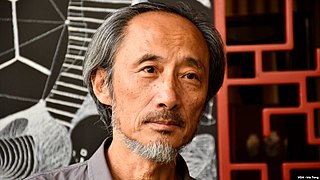A Quote by Ratan Tata
India has probably lost its position to China as the world's workshop. At the same time it has the power to be ahead of China when it comes to knowledge. Not that the Chinese are far behind. They will get there. But our challenge is to invest sufficiently in education.
Related Quotes
In terms of building consumer products, the U.S. and China are ahead of India. The interesting opportunity for India is whenever there is a disruption in technology, it gives every country a chance to leapfrog and take a lead. To take an example, China is leaping ahead in growing the China electric vehicle ecosystem.
I am against portraying China as the demon of the global community. China has grasped more quickly than other countries what globalization means and what it demands. The country has learned how to use other people's innovations for itself. India, incidentally, is not far behind China in this respect. Both are not nations in the European sense, but rather cultural communities with enormous markets. The challenge of the future is to work out how to deal with that.
The emergence of India as a major global power is an idea whose time has come. This is a legitimate ambition for China. This is a legitimate ambition for India. And the challenge for the humanity is to evolve a world system in which the legitimate ambitions of both our countries can find constructive expression without threatening anybody else.
China had never had to deal in a world of countries of approximately equal strength, and so to adjust to such a world, is in itself a profound challenge to China, which now has fourteen countries on its borders, some of which are small, but can project their nationality into China, some of which are large, and historically significant, so that any attempt by Chinese to dominate the world, would involve in a disastrous for the peace of the world.
We must teach our people the greatness of China's historical culture. In our educational program we must stress Chinese history and geography so that all may know and appreciate China's civilization of five thousand years and the far-flung boundaries of our ancient race. This will engender a greater faith in our own future.
I would have said, before the World Trade Center events, that he would try to get a normal relationship with China - making clear to China what the limits are of what America can accept, but also showing understanding for some of Chinese necessities. I thought he was moving towards the position that I have more or less advocated.
I think there's going to be a real push in the next two years in Asia - China and Korea specifically. And that's a huge undertaking. Ten years ago it was impossible to break into that part of the world. Some of the biggest companies in the world found it challenging. But I am Chinese-American and I think what we do will resonate in China. So that's where we see our biggest opportunities going forward. I do speak Mandarin and I also relate to the hunger that China has for culture and architecture and style.

































